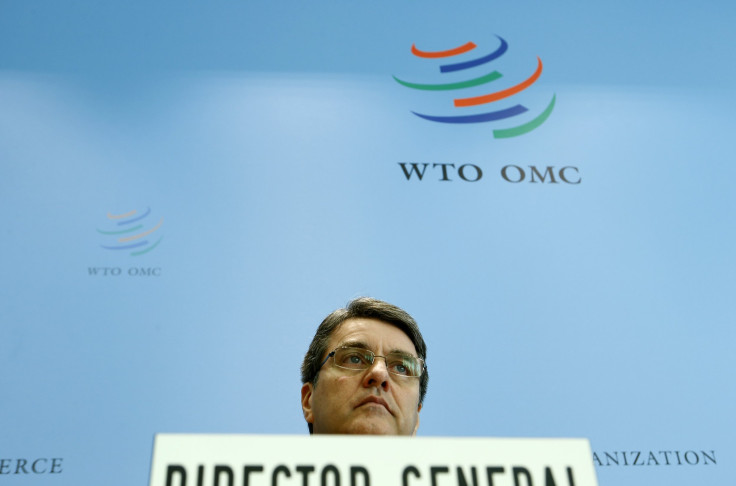Some WTO Members Discussing Customs Deal Without India: Reuters

REUTERS - A group of World Trade Organization (WTO) members has informally discussed adopting a global overhaul of customs rules without India if New Delhi goes ahead with threats to block the deal, sources familiar with the talks said on Thursday.
India has demanded the deal, which must be approved in Geneva on Thursday, be accompanied by a parallel agreement giving it more freedom to subsidies and stockpile food grains than currently allowed under WTO rules.
The ultimatum revived doubts about the future of the WTO as a negotiating body and many diplomats said New Delhi's stance could derail the whole process of world trade liberalization, leading to some nations discussing the last-resort idea of excluding India from the deal.
"If India does end up blocking (on Thursday) there is already a group of members who are interested in pursuing that path," a source involved in the discussions said.
"A dozen or so" of the WTO's 160 members had informally discussed pushing ahead with the trade facilitation agreement on a plurilateral basis, or with less than 100 percent participation, the source said. The WTO says a successful deal could add $1 trillion to the global economy and create 21 million jobs.
An Australian trade official with knowledge of the talks said a group of countries including the United States, European Union, Australia, Japan, Canada and Norway began discussing the possibility in Geneva on Wednesday afternoon.
A Japanese official familiar with the negotiations said Japan was still working on reaching a consensus.
"Everyone is thinking about what to do if something happens, or doesn’t happen, but at this stage, nothing has been discussed in Geneva officially with regard to 'alternatives'," the official said.
U.S. trade officials in Washington were not available for comment, given the late hour. A State Department official travelling with Secretary of State John Kerry in India said the United States was continuing to hold discussions with India on the deal.
"We are hopeful that as we engage in those conversations over the next few days that some agreement will emerge that will allow the trade facilitation agreement to move forward," the official said. "We think that that is in India’s interest and we hope that that's going to be the right outcome."
EU, Canadian and Norwegian officials could not immediately be reached for comment. Officials at Australian Prime Minister Tony Abbott's office said they had no immediate comment.
"ACTIVE DISCUSSION"
Technical details would still have to be ironed out but there was a "credible core group" that would be ready to start talking about a plurilateral deal when WTO diplomats return from their summer break, the Australian official said.
"What began as a murmur has become a much more active discussion in Geneva and I think that there are a lot of members in town right now that have reached the reluctant conclusion that that may be the only way to go - that if things are deadlocked tomorrow at the time of the deadline, that would be a direction that could win a significant amount of support come September."
Trade diplomats had previously said they were reluctant to consider the idea of the all-but-India option for the customs pact, partly because it would be hard to exclude one free rider in practical terms and partly because the agreement in its current state requires an amendment to the existing WTO treaty, which appears to make India’s cooperation vital.
Others pointed out that many countries, including China and Brazil, have already notified the WTO of the steps they plan to take to implement the customs accord immediately, while other countries have already begun bringing the rules into domestic law, and the WTO has already set up a funding mechanism to assist.
One trade diplomat in Geneva described two worlds moving in parallel, with a few WTO members wrangling with India, and everyone else moving ahead, as if oblivious to India’s objections.
The Australian official said although the plurilateral approach was far from ideal, an Australian government analysis of the WTO talks in Geneva explicitly mentioned the possibility of excluding India from the agreement and proceeding without it as a last ditch measure.
"Some of the material we've seen come out overnight suggests the plurilateral option may indeed now be on the table," said the official. "It was basically there as like a 'break glass' type of option, I think, in terms of if we got to the eleventh hour and it fell over."
© Copyright IBTimes 2024. All rights reserved.




















